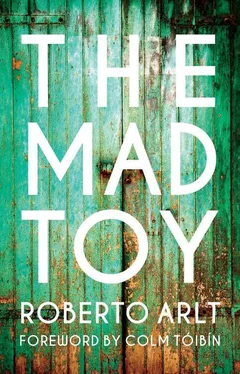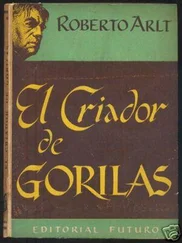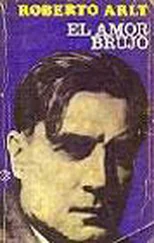And if one were the only person engaged in this… but you also need to understand that on exactly the same spot where we stand and expatiate upon the advantages of entering into business with us have stood many other salesmen offering the same produce under slightly different conditions, something which hands the advantage even further to the purchaser.
How to explain why a man chooses another man from among many for their mutual benefit?
It is no exaggeration to say that material and spiritual relations have been established between the individual and the sales man, an unconscious or simulated relationship based on economic, political, religious and even social ideas, and any sale, even of a packet of needles, except in cases of overwhelming need, presents more difficulties than the expansion of one of Newton’s binomials.
If only that were all!
You also have to learn how to control yourself, how to put up with all the insolence of the petty bourgeois.
In general tradesmen are cunning but dumb, low-class people, people who have made themselves rich by dint of most painful sacrifice, by petty larcenies beyond the reach of the law, by waterings-down that either nobody notices or else everyone tolerates.
The habit of lying has put down roots among this riffraff, people accustomed to dealing with capital in large or small quantities and who are made noble by having taken out loans, something that gives them a veneer of respectability and which therefore generates in them some kind of military spirit, that is to say, makes them accustomed to address their inferiors without respect, in the same way as they talk to strangers who need to deal with them in order to do business.
Oh! How painful they are, the despotic gestures of these moneyed hustlers, who take inexorable note of their earnings behind the Judas windows of their offices; how their ignoble muzzles twitch with murderous instinct as they say:
‘Lay off it, man, we only buy from important companies.’
But you tolerate it, you smile and shake hands… because ‘that’s life’.
Sometimes, when I had finished my round, and if I wanted to stay out for a while, I would go to have a chat with the cart attendant at the Flores fair.
It was a fair like many others.
At the end of the street with whitewashed houses, covered by an ocean of sun, the fair would suddenly appear.
The wind brought a sour smell of vegetables, and the awnings of the stalls shaded the tin counters set up parallel with the pavement in the centre of the street.
I can still see this picture in my mind’s eye.
The fair is two rows of stalls.
One row is made up of butchers, pork butchers, egg sellers and cheesemongers, and the other is made up of people selling vegetables. The column stretches out, shoutingly bright, churrigueresque with colours, with bearded men in shirtsleeves next to the baskets full of vegetables.
The line begins with the fishmongers’ stalls, with the ochre baskets stained by the red of prawns, the blue of the pejerreys, the chocolate colour of the bivalves, the bright lead colour of the winkles, the zinc white of the hake.
Dogs patrol, on the lookout for discarded offal, and the salesmen with their hairy naked arms and an apron covering their chest reach out and take the fish their customers ask for by the tail, open its stomach with a single movement of the knife, sink their fingers into its back to pull out the guts and then cut it in half with a sharp blow.
Further along, the tripe sellers clean tripe on their tin counters, or hang immense red livers on hooks.
Ten monotonous cries are continuously repeated:
‘Fresh pejerrey… it’s fresh, lady.’
Another voice:
‘Here… the good stuff’s here. Come and see.’
Pieces of ice covered in red sawdust melt slowly in the shade over the backs of boxed fish.
When I went in, I would ask at the first stall:
‘Where’s The Crip?’
Hands on hips, dirty aprons billowing over their stomachs, the vendors would shout out in their nasal or shrill voices:
‘Crip! Come on, Crip!’ And because they liked him, they laughed richly as they called his name, and The Crip, recognising me at a distance, would walk slowly in order to enjoy his popularity, limping slightly as he came. When he saw a maid he knew standing by one of the stalls he would touch the brim of his hat to her with the tip of his riding crop.
He paused to chat and smiled as he talked, showing his twisted teeth in his perennial roguish smile; then he would move on, winking slantwise at the butcher boys who were making obscene gestures at him.
‘Crip… che , Crip… over’ere,’ they called from the other side.
The layabout would turn his angular face to one side, tell us to wait, and elbow his way through the women who crowded in front of the stalls, and the females who did not recognise him, the grumbling avaricious old women and the bilious and greedy young women and the pretentious and lymphatic little girls all looked with bitter suspicion, with a disgust that they made small effort to disguise, at this triangular, sun-reddened, brazen face.
He was an idle fellow who liked to fondle the backsides of the huddled-together women.
‘Crip… Over’ere, Crip’
The Crip was popular. Also, like all historical figures, he liked having friends, saying hello to his female neighbours, bathing in that atmosphere of carnival and crudeness that is immediately established between a low-class tradesman and a greasy housewife.
When he talked about dirty things, his red face would shine as if it had been freshly larded, and the circle of tripe sellers, vegetable sellers and egg sellers would revel in the dirt with which this scoundrel’s jokes spattered them.
They called him:
‘Crip… Over’ere, Crip.’ And the burly butchers, the robust children of Neapolitans, all the bearded dirty folk who earn their living in an impoverished traffic in poor goods, all the riffraff, people both thin and fat, corrupt and merely greedy, the fishmongers and the vegetable sellers, the butchers and the buttermen, all of the grasping scum-of-the-earth would rejoice in The Crip’s tomfooleries, in The Crip’s shamelessness, and The Olympian Crip, insolent and gossipy, the market’s mascot, would walk with his hips swaying along the passage strewn with greens and stems and orange-peel, his favourite obscene song on his lips:
And it’s great to get some for free.
He was a worthy scoundrel. He had joined the noble profession of cart attendant ever since the day when he had been lamed by a horse. He always wore the same uniform, that is, green flannel trousers and a jacket that looked like a bullfighter’s.
The part of his neck that was left uncovered by the jacket collar he adorned with a red handkerchief. A greasy wide-brimmed hat shaded his forehead and instead of boots he wore straw-soled shoes with violet canvas uppers decorated with pink arabesques.
He would hobble from one end to the other of the row of carts with his riding crop, which was permanently in his hand, calming the horses that bit each other ferociously for amusement.
The Crip was a cart attendant, but he was also a thief, a pimp by vocation and a gambler by habit. All in all he was a particularly friendly rogue, who would gladly do you any favour or play any trick on you.
He said that he had trained to be a jockey, and had been lamed in his leg because his comrades had enviously caused his horse to shy, but I don’t believe he had ever got beyond shovelling shit in a stable.
He did, it is true, know more names and qualities of horses than a churchgoer knows about martyrs. His memory was an Almanach de Gotha of equine nobility. If he spoke about minutes and seconds you would imagine that you were hearing an astronomer, and when he spoke about himself and the loss that the country had suffered in losing a jockey such as him, then you would be drawn close to tears.
Читать дальше












